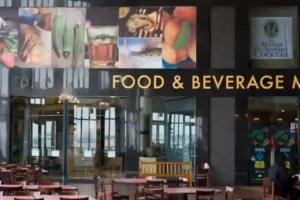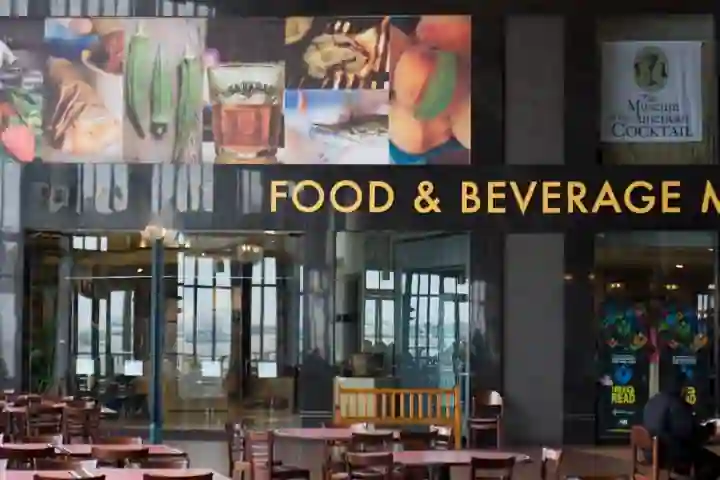Running a food and beverage business involves unique risks and challenges. Whether you operate a restaurant, a food truck, a catering service, or a beverage company, securing the right insurance is crucial to protect your investment and ensure long-term success. This comprehensive guide will explore the best insurance options for food and beverage businesses, covering essential policies and tips for selecting the right coverage.
Why Insurance is Essent

ial for Food & Beverage Businesses
The food and beverage industry is fraught with potential hazards, including foodborne illnesses, kitchen accidents, equipment breakdowns, and liability issues. Without adequate insurance, a single incident could lead to significant financial losses or even business closure. Insurance provides a safety net that helps businesses recover from unexpected events and maintain operations.
Key Types of Insurance for Food & Beverage Businesses
- General Liability Insurance

- Coverage: Protects against third-party claims for bodily injury, property damage, and advertising injuries.
- Importance: Essential for covering incidents such as customer slips and falls, damage to a customer’s property, or allegations of false advertising.
- Product Liability Insurance
- Coverage: Covers claims related to foodborne illnesses or allergic reactions caused by your products.
- Importance: Crucial for businesses involved in food production, processing, or serving, where contamination or ingredient mislabeling could lead to lawsuits.
- Commercial Property Insurance
- Coverage: Protects your business property, including buildings, kitchen equipment, furniture, and inventory, from perils like fire, theft, or natural disasters.
- Importance: Ensures that physical assets are protected, allowing for repairs or replacements without crippling financial burden.
- Workers’ Compensation Insurance
- Coverage: Provides benefits to employees who suffer work-related injuries or illnesses.
- Importance: Mandatory in most states, it helps cover medical expenses and lost wages, protecting both employees and employers from financial strain.
- Commercial Auto Insurance
- Coverage: Covers vehicles used for business purposes, including delivery trucks and food trucks.
- Importance: Essential for businesses that rely on transportation, protecting against accidents, theft, and damage.
- Business Interruption Insurance
- Coverage: Compensates for lost income and operating expenses if your business is temporarily unable to operate due to a covered event, such as a fire or natural disaster.
- Importance: Helps maintain cash flow during unexpected closures, ensuring financial stability and continuity.
- Liquor Liability Insurance
- Coverage: Protects businesses that sell or serve alcohol against claims resulting from alcohol-related incidents, such as a customer causing an accident while intoxicated.
- Importance: Vital for bars, restaurants, and any establishment serving alcohol, addressing the specific risks associated with alcohol service.
- Cyber Liability Insurance
- Coverage: Covers losses related to data breaches, cyberattacks, and other digital threats.
- Importance: Increasingly important in an era where customer payment information and business data are stored digitally, protecting against financial and reputational damage.
Tips for Choosing the Right Insurance
- Assess Your Risks: Conduct a thorough risk assessment to identify the specific risks your business faces. This will help you determine which types of coverage are most critical.
- Compare Quotes: Obtain quotes from multiple insurance providers to compare coverage options, limits, and premiums. Look for policies tailored to the food and beverage industry.
- Check Insurer Reputation: Choose an insurer with a strong reputation for reliability and customer service. Read reviews and seek recommendations from other business owners in the industry.
- Understand Policy Details: Carefully review policy terms, conditions, exclusions, and limits. Ensure you understand what is covered and what is not, and consider higher limits for more comprehensive protection.
- Consult an Insurance Broker: An insurance broker with experience in the food and beverage industry can provide valuable insights and help you find the best policies to meet your needs.
Conclusion
Insurance is a vital component of a successful food and beverage business, offering protection against a wide range of risks. By securing the right coverage, you can safeguard your business assets, support your employees, and ensure continuity in the face of unexpected events.
Take the time to assess your risks, compare options, and consult with experts to build a robust insurance plan that will provide peace of mind and financial security for your business.

